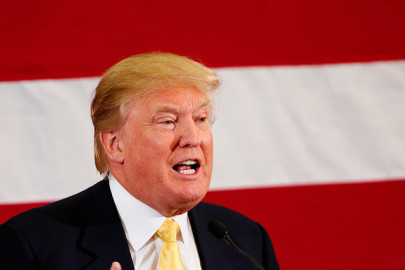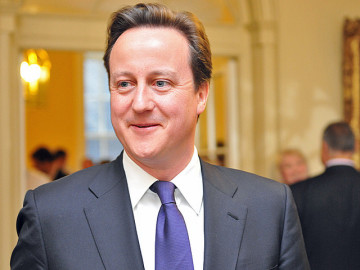By Peter Ward February 26, 2016
Electric Cars to Kill Oil?

Electric car charging. ©Frank Hebbert
Big oil may be in big trouble. That’s the message conveyed by a data visualization published by Bloomberg this week showing how the electric vehicle market could flatten an industry that is already suffering from plunging oil prices. The price of oil has been in decline for the past two years, amid a huge glut in supply.
The infographic argues against OPEC’s claim that electric vehicles will make up only 1% of the total market by 2040, comparing the rise of the electric car to that of color TVs, refrigerators and smartphones.
The electric car industry is set for a boom, the infographic suggests. That’s because more manufacturers are building them, vehicle prices are falling, and the performance of car batteries is improving, as well. All this means that 2 million barrels of oil per day could be made redundant by as early as 2023. If the auto industry is consuming 2 million barrels of oil less per year, the oil industry will inevitably teeter into deep crisis, the Bloomberg report argues.
The infographic is accompanied by a video which uses the data, animation and a voiceover to present the argument.
Ugandan Security Personnel Struggle with U.S. Health Insurance

Soldiers with the Ugandan People’s Defence Force. ©Defence Images
U.S. health insurance is difficult enough to navigate for most English-speaking residents, but it’s nearly impossible for the Ugandan contract workers injured guarding U.S. military installations in Iraq.
A longform article published by The Intercept on Monday shed light on the struggles faced by Ugandans wounded on American bases in Iraq, as they seek compensation for their life-altering injuries.
Reporter J.P. Lawrence does fantastic work gathering the stories of those seeking the payouts they deserve, and describing the efforts of the one American lawyer who brings them all together. Lawrence also draws attention to the stubbornness of the insurance company, and the lengths it allegedly went to avoid a payout.
Although the article features non-committal statements from the insurance company involved, readers might have benefited had the reporter succeeded in illuminating how such decisions at insurance companies get made. Meanwhile, the use of first person doesn’t seem to further the narrative, mostly distracting from the stories of the main characters. But ultimately, the article does a great job of illuminating an injustice done to those not given credit for the work they do for the U.S..
Trump to Take Stand in Fraud Trial

Donald Trump ©Michael Vadon
As Donald Trump continues his march towards the Republican nomination for President, his past business dealings are attracting great scrutiny from investigative journalists.
Michael Isikoff this week reported in Yahoo on Trump’s impending appearance as a witness in a trial in which the now defunct ‘Trump University’ is being sued for fraudulent activities. Isikoff’s review of the court papers revealed that Trump has been accused of threatening to financially ruin the lead plaintiff in the case.
Trump is also facing scrutiny from renewed allegations of sexual assault from a woman who dropped a federal lawsuit against him in 1997, a month after the complaint was filed. The Guardian asked the woman, who the newspaper did not name, whether she stood by the allegations that Trump “violated her physical and mental integrity”, and she replied via text message “yes.”
‘Brexit’ Explained

U.K. Prime Minister David Cameron ©Number 10
Should the U.K. stay or should it go? That’s the question Brits will be answering on June 23, when they vote to either stay in the European Union or leave.
Back in January 2013, British Prime Minister David Cameron promised his Conservative Party would hold a vote on Britain’s E.U membership. That assurance was repeated as an election pledge in 2015, and a date has now been set for the referendum.
Cameron immediately pledged his support for the country to remain a part of E.U., but prominent members of his own political party have already stated they will campaign for an exit. The highest profile of these is popular London Mayor Boris Johnson.
Those angling for an exit claim that Britain’s economy would perform better if it were unshackled from the European Union, and the U.K. needs better control on its own immigration policies. They point to Norway and Switzerland as examples of European countries who have maintained strong economies, despite non-membership in the E.U. Exit advocates also argue that adhering to E.U. laws and rulings cheapens democracy in the U.K., as decisions by those elected in Britain can be affected by politicians in Brussels.
The case for remaining in the E.U. is simple – Britain is stronger as part of a powerful group of countries, and would be better able to effect change in Europe from the inside of that organization.
There is a serious risk of Britain’s economy being weakened dramatically should the country exit, given that E.U. countries take half of the U.K.’s exports. An exit from the E.U. would not rule out trade between the U.K. and the E.U., but it would make it more difficult. ‘Stay’ campaigners also claim the U.K.’s economy would struggle without the ready access to European immigrants which comes from E.U. membership.
The debate is expected to rage in the U.K. over the next few months, and no quarter will be given on either side. Right wing parties such as the U.K. Independence Party will look to sell the narrative that the U.K. has lost its identity and is drowning in immigration, while the more hyperbolic supporters of the E.U. will prophesize a complete economic collapse should the U.K. go forward alone.
In the short term, the markets have reacted negatively to the possibility of a Brexit – the British pound fell to its lowest level against the dollar since 2009, in reaction to the referendum announcement. Investors worry that divorcing the world’s fifth largest economy from its biggest market and greatest allies will severely weaken both the U.K. and the union it may or may not leave.
The Week’s Top Headlines
Apple’s Cook Says Unlocking iPhone Would Be ‘Bad for America’ – Dina Bass, Bloomberg
Brazil: Moody’s becomes third rating agency to label country’s debt junk – Jonathan Watts, The Guardian
Republican Marco Rubio winning Wall Street fundraising race – Ginger Gibson and Grant Smith, Reuters
The Mars candy bar recall is anything but fun-sized…and it just got worse – Chase Purdy, Quartz
South Africa’s economy ‘in crisis’ – BBC
Fed’s Bullard: Stock correction prevented bubble – Matthew J. Belvedere, CNBC
Beijing Overtakes New York to Become Billionaire Capital of the World – Vice News
Foxconn deal for Japan’s Sharp in doubt after last-minute hitch – Makiko Yamazaki and J.R. Wu, Reuters
Citi: Here Comes a Global Recession – Julie Verhage, Bloomberg
China stocks slump more than 6% – Sophia Yan, CNNMoney
This entry was posted on Friday, February 26th, 2016 at 3:50 pm. It is filed under Week in Review. You can follow any responses to this entry through the RSS 2.0 feed.
Comments are closed.
